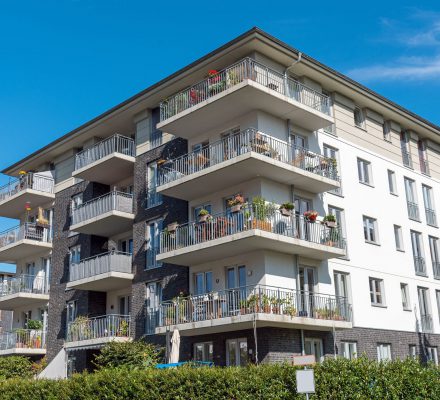The main goal for any investor is to own real estate property. Investing in real estate allows you to diversify your income streams and get long-term capital appreciation. However, in some cases, the investor can get it wrong in real estate investment, and the cost may be significant.
If you are close to retirement and the funds you have are not enough to last you throughout retirement, you should consider investing in real estate.
Owning a real estate property may not be the first thing that comes to mind, but an income property is an important bridge leading to retirement, especially for those who don’t have enough to retire traditionally.
Real estate is an inefficient market; therefore, it is possible to find wonderful bargains with a very high return on investment. It gets even better if you can manage the property by yourself since you will collect more income. Purchasing the right property at the right price and terms, a rental property will generate more income than the traditional passive investment
How Much Money Is Needed
If you are planning to finance the purchase of your real estate property using a mortgage, you need to start the process before retirement.
The guidelines governing mortgage lending require all applicants to be employed and to have a minimum of two years of constant employment history in one occupation.
The lenders will also need a considerable down payment of 30% and above if the buyer has no intention of occupying the property.
You can use your IRA funds if you lack enough cash to pay a substantial down payment. All your equity development and rental income will blossom while it is in your IRA tax-delayed. Buying the real estate using funds in a Roth IRA, which has already been taxed, means all you earn, together with your equity, grow tax-free.
Ways to Invest in Real Estate for Retirement
Real estate is an old form of investing considered by many as the safest form of investment compared to other volatile investments such as stocks. When you invest in a rental property, you will get a stable rental income. This is far much better than what the stock market offers.
After acquiring an apartment building or a house as a rental property, you will no longer be worried about the value going up or down daily.
Instead, you can anticipate the steady growth of your money as long as you invest in properties that offer cash flow and appreciation. There are several ways of investing in real estate, and we shall discuss how to get started.
Invest in Property You Already Own
There is a sense of security when you own your home, especially if you’re planning on staying in one place for a long howl. As of 2022, almost 80% of senior citizens owned homes.
Owning a home makes it possible to build equity and pay down your mortgage simultaneously. Both of them are attractive retirement investment strategies. You can also rent out some rooms or move into a smaller rental property while renting out the rest of the house.
Purchase a Multi-Family Home or Commercial Property
If living in one location is not in your plans, you can consider investing in a multi-family home or commercial property where other people will pay you rent and make your mortgage payments monthly.
While this kind of real estate property may demand more initial capital than a single-family home, some tax benefits are associated with owning several properties and increasing your growth potential if the investment is done correctly.
Invest in REIT
You can also consider investing in real estate through a REIT. It has ownership of approximately $ 3.5 trillion in gross real estate assets. Among these assets, $ 2.5 trillion consists of publicly listed and non-listed REITs, while the balance comprises privately held REITs, an abbreviation for Real Estate Investment Trusts.
Companies with ownership of income-producing real estate which sell shares of themselves to investors are known as REITs. Investing in REITs is a way of investing in real estate without owning any property.
These entities are usually traded on the stock exchange just like any other publicly traded company, meaning you get some liquidity and maybe good returns as compared to buying and selling individual properties.
Invest for Cash Flow
Cash flow refers to the money you receive from rent and other income. It indicates whether or not your property is a good investment since it shows how the property generates income. If you don’t have cash flow, making mortgage payments and paying maintenance costs will be challenging.
Most investors’ focal point is home-price appreciation, which means that they are only interested in how much the value of their houses has increased since they bought them. Your focus should be on cash flow when deciding on whether or not to buy real estate as part of your retirement plan.
Your main aim should be to have enough money left over after paying all your bills so that you can comfortably live without working again.
Flip Properties for Profit
Flipping properties is a risky venture that can be a good strategy in a hot market. It involves purchasing a property with structural issues, renovating it, and selling it at a profit. This strategy can give you a huge payday if you can take the risk.
Flipping houses is risky since there is no guarantee you will make money after paying all your expenses.
Even if the real estate market is in a bad situation, but it is about to get better, you are still not guaranteed that the property will sell for more than what you spent buying it or cover your expenses for the repairs.
Purchase a Vacation Rental Property
A good investment is a property that can generate passive income. This means buying and renting out property without managing it all the time. In the United States, individual real estate investors make up 72.5% of rental property owners.
Vacation rental properties can perfectly fit this criterion. You can use your investment as a secondary income stream and cover ownership costs with the rental payments. You can always opt for Airbnb if you feel uncomfortable managing tenants or dealing with maintenance issues.
The key is to look for a vacation rental property with an official market and a demand for rentals to be profitable to both you and potential tenants.
Purchase and Convert Office Space to Residential Units
Buying office space and converting it into a residential unit can be a good investment for retirees. This is because underutilized office spaces are usually located in great areas and are normally cheaper than residential properties.
Additionally, converting office space into residential units means you use the property more by providing it with additional value.
If you live in an area that lacks places where people can rent or buy homes but need them because they work nearby during weekdays but don’t prefer hotels over the weekends, your property would have added value, and you get a ready tenant pool.
Buy a Multi-Family Dwelling
If you buy a multi-family home, there are a few things to consider.
You can live in one unit while you rent the others. By doing this, you earn passive income since you will be collecting rent while living in your own house.
Key Takeaways
- One tax benefit you get from owning a rental property is the ability to claim a depreciation deduction on your income tax return.
- The inefficiency of the real estate market can produce bargains that can offer good returns.
- Rental real estate can generate some retirement income.
- If you need to borrow to purchase a rental property, do that while actively employed.
- Finding a good location is better than getting a cheap property.
- When carrying out retirement investing, always earn at least 8% per year on your investment, after costs.
Potential Problems
Real estate investors sometimes encounter several problems, such as tenants who refuse to pay, difficulty finding tenants, and excessive property maintenance costs.
You must work with a reputable real estate agent to find your investment property. Some municipalities have strict inspection regulations and fees imposed on landlords who intend to turn owner-occupied properties into rentals.
As an investor, you need to be aware that homestead exemptions do not apply to investment properties, so you can get a higher property tax bill.
Rental property is not a completely passive investment. If you don’t want to or can’t manage your rental property, you will have to give 8% to 10% of your gross rental income to a property management company to help in rent collection and repairs. You can also hire a property manager.
Investing in real estate is a sure way of creating retirement wealth and a guarantee that you will always have a monthly income even after you stop active employment, but you need to be smart about it and seek advice from experienced people.




